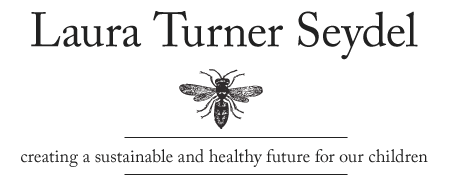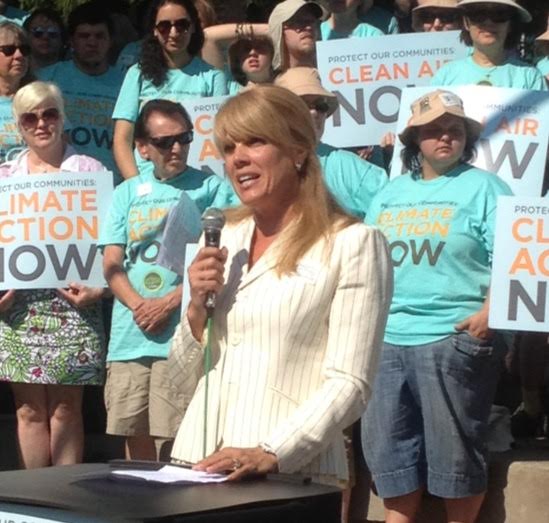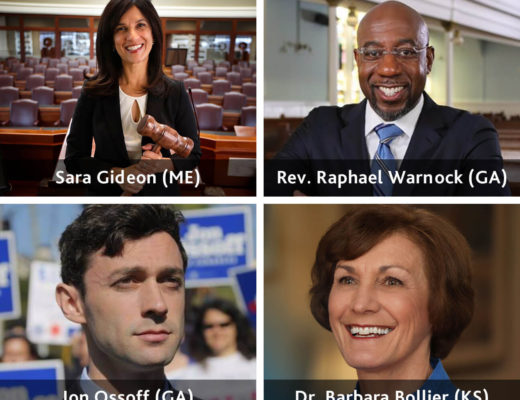Absolute certainty on an issue can be a weakness. Our world is changing so fast that we must continuously examine our ideas and views and be willing to learn new information from unlikely sources to challenge our own experiences and assumptions. This isn’t easy. But for me, protecting our planet’s wildlife, lands, water and air for everyone living today and for all who will come after is strong motivation to confront my own biases and knowledge gaps.
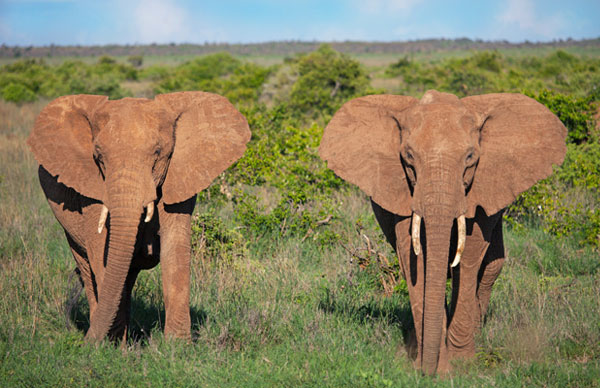
Space for Giants helped to secure 56,000 acres of wildlife territory here at Loisaba Conservancy in Kenya, a key elephant habitat acting as a corridor between other major conservation areas. Photo courtesy Space for Giants
With an open mind, I recently had the privilege of attending the Giants Club Summit. Founded by the presidents of Botswana, Kenya, Gabon and Uganda, the Giants Club is working with many partners and supporters to combat the elephant poaching crisis by bringing together leaders of African elephant-range states, heads of major businesses operating in Africa and leading experts to provide the political will, financial resources and technical capacity to save Africa’s remaining elephant populations.
Before attending the summit, I did not have a clear view on the issue of banning the trade and sale of ivory. Working for decades with a multitude of organizations on a wide range of environmental issues, I know that compromises are often necessary to get to the ultimate change that is needed. It is incredibly difficult to enact and enforce unequivocal, absolute change. But what I heard and experienced at this transformative gathering left me without an ounce of doubt: ivory trade anywhere puts elephants everywhere at risk. We need a complete global ban – no exceptions.
Have you ever had the thrill of seeing an elephant in the wild on an African safari? Or lingered in awe with your children at the elephant exhibit at a zoo? Get that image in your mind and think about this: there are about 415,000 elephants remaining in Africa. Botswana is home to the largest herd of free-roaming elephants and is home to one-third of the continent’s threatened elephant population. Tens of thousands are killed every year for the ivory trade. At the current rate of poaching, elephants could disappear from the wild in our children’s lifetimes.
At the summit, I learned that there are many reasons to be hopeful, but it is going to take so much more to improve the outlook for elephants. Thankfully, many leaders have come together and taken bold steps, and the impacts of their commitments are becoming apparent.
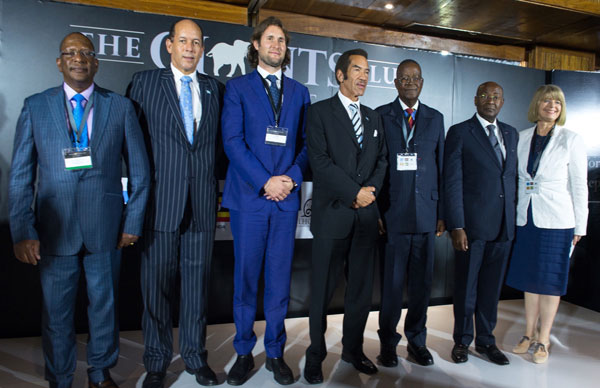
Leaders meet at the Giants Club Summit: Keriako Tobiko, Cabinet Secretary of Environment and Forestry, Government of Kenya; Tshekedi Khama, Minister for Environment, Conservation, Natural Resources and Tourism, Government of Botswana; Max Graham, Space for Giants CEO; H.E. Ian Khama, President of Botswana; Ephraim Kamuntu, Minister of Tourism, Wildlife and Antiquities, Government of Uganda; Pacôme Moubelet-Boubeya, Minister for Forestry, Environment and Protection of Natural Resources, Government of Gabon; Harriett Baldwin, Minister for Africa, UK. Photo courtesy Space for Giants
There are numerous people and organizations working at the source in Africa. Leaders like Chris Thouless, of the Elephant Crisis Fund, are partnering with others, including the Leonardo DiCaprio Foundation, to fund anti-poaching, anti-trafficking and demand-reduction projects. Space for Giants, the organization that is affiliated with the Giants Club, with counsel from director of legal strategy Shamini Jayanathan, is working to significantly increase the penalties for poaching and ivory trafficking in Africa. The National Geographic Society created the Okavango Wilderness Project with a team of scientists and experts led by conservation biologist Steve Boyes. They have produced a documentary that premiered at this year’s Tribeca Film Festival, on Earth Day, April 22, about the Okavango River – a system that provides drinking water to a million people and is home to the world’s largest remaining population of elephants.
While elephants are slaughtered in Africa, the demand for ivory reaches around the globe and in particular from China. I listened to Grace Gabriel, the Asia regional director of the International Fund for Animal Welfare, discuss polling conducted by her organization in 2007, which found that 70% of people surveyed in China believed ivory can be taken from an elephant without inflicting harm. In recent years, 70% of all illegal ivory from Africa makes its way to China, so changing cultural norms is clearly critical. Research conducted by WildAid, the African Wildlife Foundation and Save the Elephants found that the proportion of Chinese residents who believe tusks are obtained only from natural elephant mortality fell from 33.8% in 2012 to just 10.5% in 2014, and 95% of respondents supported an ivory ban. In 2017, the Chinese government completely ended the legal ivory trade, and Lucy Vigne, a researcher with Save the Elephants, reported that in the same year, ivory prices around China dropped 65%, to about $730 per kilogram, from 2014 peak levels of about $2,100 per kilogram.
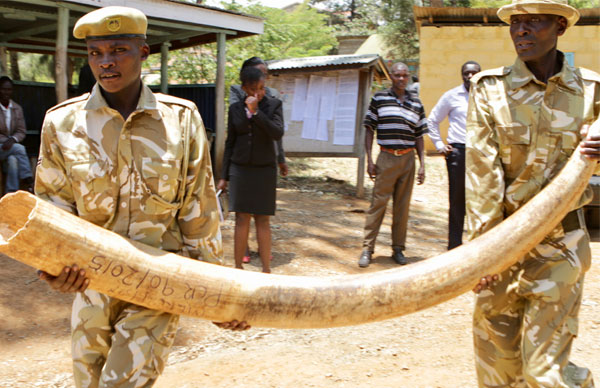
One of two massive tusks (together weighing 93kg) Kenya Wildlife Service seized in case near Meru in northern Kenya. The suspect was acquitted. Photo courtesy Space for Giants
The world is beginning to get the message. The United Kingdom is planning to introduce an aggressive ban on ivory trafficking, but the news closer to home is troubling: President Trump’s administration has withdrawn previous rulings so that some trophies from game hunting, including elephant tusks, can legally enter the United States. As a leader in global policy and trade, this deeply disappointing move by our country sends mixed signals to the rest of the world.
I am committed to representing the need for a complete ban on ivory, here in the United States and around the world. Safeguarding elephants is possible, and it is the responsibility of each of us to question our beliefs so that this iconic species – and many others – can endure forever.
HOW YOU CAN HELP:
Space for Giants: Make a donation and design your own digital elephant in support of this organization’s groundbreaking work to train and equip rangers, create and enforce policies that help elephants in the wild, and raise awareness. spaceforgiants.org
National Geographic Okavango Wilderness Project: Watch the trailer for “Into the Okavango” to discover why this diverse river delta matters to people and wildlife, and see the need for immediate action to keep the system flowing. nationalgeographic.org/projects/okavango/
Elephant Crisis Fund: Sign up for updates on the outlook for elephants and make a donation. elephantcrisisfund.org
International Fund for Animal Welfare: Read the latest news about ivory bans and policy. ifaw.org
Save the Elephants: Discover the many ways you can get involved in protecting elephants. savetheelephants.org
